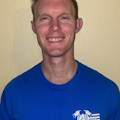The Foundation of Firefighter Wellness: Sleep
Not too long ago, the fire service was one of the most coveted and competitive careers. Thousands lined up for physical and written tests, having paid out of pocket just for a shot to get on a list that would land them the “dream job.” Candidates studied for hours on their own time, trained aggressively for peak fitness and hoped against hope that they would be selected in the top 10 percent of the hiring pool.
In 2023, the story couldn’t be any more different. The applicant pool has dwindled to shockingly reduced numbers: What used to be thousands who applied has shrunk to hundreds, if not dozens. In this unparalleled staffing crisis, departments force firefighters to work in unprecedented fashion—as many as 120 hours per week in many places.
So, what has happened to “the greatest job ever”? One only can guess that the ever rising demands and socioeconomic loads of the job might be causing more than simply a staffing crisis: The situation also is slowly and silently killing firefighters. It might sound dramatic, but there’s an overwhelming body of proof from the medical and scientific communities that, in fact, many line-of-duty deaths directly correlate to chronic sleep disturbances and sleep deprivation.
Simply put, the well-being of firefighters and their quality of life is at a historic low.
Substance abuse, marital relationship issues, depression, suicide, chronic degenerative disease (aging faster than you normally would) and body fat are increasing among our brothers and sisters. Recalls, reduced staffing that leads to higher strain per resource per day, and less downtime to decompress and/or sleep all are negative contributors to the silent suffering that first responders encounter.
Traditionally, the fire service took great pride in the “suck it up, buttercup” mindset, which drew military veterans and Type A individuals alike. Firehouse pride included demanding lifestyle choices, including no naps, challenging physical workouts, hours of drilling each day and staying up until midnight on duty to hang out with the crew. That was before stations were hitting 4,000–5,000 calls per year and running as many as 16 or more calls per day, with as much as 50 percent of them being after midnight.
Although it’s important to maintain numerous traditions and a high standard of service to communities, the fire service is evolving. Some things must change.
The price of lack of sleep
Be honest. If you aren’t taking care of yourself, how can you take care of anybody else?
You must understand that taking care of yourself doesn’t make you any less of a “tough” man or woman. Having situational awareness can mean the difference between life and death on the fireground. What better place to start than with the bedrock of wellness: sleep.
As a firefighter, this is the statistical reality: Two or three calls per night can equate to missing out on four hours of sleep per night, or about half of what the Center for Human Sleep Science, the Centers for Disease Control and Prevention, and the World Health Organization recommend. This means that instead of getting 2,920 hours of sleep per year (eight hours of sleep per night), firefighters who work on a 24/48 schedule at just moderately busy firehouses experience sleep loss of 486 hours, or 20.2 days, of sleep per year. Over a 25-year career, that’s 505 days of sleep loss, or almost 3 years of sleep debt. This type of sleep debt comes with a risk of all-cause mortality by as much as 40 percent.
Ironically, sleep is what most people have at the bottom of their priority list. In a profession in which sleep is difficult enough to come by, lack of sleep in some circles is a nonsensical badge of honor. Although it’s important to get your reps in as a new member, sleep debt comes with a price.
Dr. Andrew Huberman, who is a neuroscientist, a tenured professor at Stanford University School of Medicine and the host of the popular podcast “Huberman Lab,” explained the results of recent studies on sleep in his Dec. 8, 2022, episode. Some of the information that’s discussed in that episode is summarized below.
Throughout the night, we experience three stages of sleep. Deep sleep, or slow-wave sleep, occurs primarily in the first half of a sleep night (8 p.m.–2 a.m.). Light sleep occurs in the “middle” of a sleep night. REM (rapid eye movement) is the second half/end of a sleep night (5 a.m.–8 a.m.). The different stages of sleep have profound effects on our health.
Deep sleep
Deep sleep is vitally important. It’s responsible for releasing growth hormones that affect testosterone and estrogen levels. It helps with muscle repair and also is involved in metabolism and regulating insulin. Most importantly, though, are the benefits that are associated with brain tissue. High-quality deep sleep leads to a “wash out of debris” (amyloid beta peptide) that’s in the brain that’s known to lead to dementia.
Actionable steps to improve the quality of deep sleep include avoiding caffeine and alcohol at least eight hours before bedtime. Follow the 3-2-1 Rule: no food three hours before bed, no fluids two hours before bed and no screens (smartphones, TV, etc.) one hour before bed.
At night during calls or “holding the wall” at the emergency room, wear long-sleeve shirts, hats and/or blue-light-blocking glasses. The skin is an organ, and, as such, a person absorbs light through the skin as well as through the eyes. The blue light that’s used in brightly lit facilities and on a smartphone decreases the body’s melatonin levels, which can cause difficulty falling back to sleep/achieving high-quality sleep.
REM sleep
REM sleep has its own unique benefits when adequate amounts are achieved during the night.
REM normally is a period when people have highly emotional dreams, which also is known as a trauma release. This is believed to be important for emotional repair. Studies show that those who are deprived of REM sleep decrease their ability to manage emotions during the day. In other words, lack of REM can lead to depression and moodiness with family, coworkers and patients.
Meditation
Aside from being awake because of increased call volumes, a majority of first responders have trouble falling asleep because of hypervigilance. This is defined by WebMD as the elevated state of constantly assessing potential threats that are around you. People who were in combat or survived abuse or who have post-traumatic stress disorder (PTSD) can exhibit hypervigilance.
The U.S. military realized the issue of hypervigilance as soldiers returned from Afghanistan. In 2006, the Department of Defense conducted research at Walter Reed National Military Medical Center on the efficacy of so-called iRest. iRest is an adapted form of yoga nidra, or yogic sleep, which was developed by Richard Miller, to help service members who returned from the global war on terror to better manage symptoms of post-traumatic stress, which include issues with sleeping. iRest meditation was endorsed by the Surgeon General of the U.S. Army and recognized by the Defense Centers of Excellence for Psychological Health and Traumatic Brain Injury as a form of complementary and alternative medicine. You can learn more about iRest and its application to veterans/military at irest.org/projects/veterans.
Additionally, a resource on Instagram is the “Bio-Hacked Firefighter.” Coach Christina Dizon is a firefighter whose passion is assisting fellow first responders in upgrading their sleep, recovery and lifestyle through wellness and bio-hacking strategies.
Rest and recovery
Work relief and a decrease in call volume don’t appear to be coming anytime soon. It’s up to you to not only look out for your fellow brothers and sisters but also yourself.
Old-school traditions must meet new-school realities. Keep your word, have integrity, work hard and work smart. When you work hard, you must rest and recover hard.
We have the best job in the world. We also want to live long enough to enjoy the benefits of the job with our family for many years after retirement. Change starts today.
Quick Tips for Restful Mornings and How to Get Rest During the Day
Restful Mornings for the Station
- Have the incoming crew hold off on early morning cleaning and vacuuming and instead get some exercise.
- Captains: Delay “line-up” to allow crew members to sleep in; the same goes if there isn’t any new material to share.
- Discuss with the crew to forgo obnoxious phone wake-alarms in the common dormitory and to purchase a vibrating alarm clock that can be placed under the pillow.
- Cellphones should be in airplane mode to reduce radiation and, if possible, kept away from where the owner of the phone sleeps.
Restful Mornings for the Firefighter
- After waking, go outside and get some morning sunlight (5–10 minutes).
- Choose coffee or a morning workout within the first hour of waking (delay the second activity for an hour after).
- Spend five minutes practicing energizing breathwork (we like “Breathe with Sandy” on YouTube).
Restful Afternoons
- When riding the ambulance and stuck at the hospital “holding the wall” for multiple hours with a stable patient, one member can take a safety nap in the ambulance. Bring an eye mask to block the sunlight.
- Spend time lightly stretching or following an online restorative yoga class before going to bed or taking a nap (we like “Yoga with Bird” on YouTube).
- When napping or sleeping, utilize the “NuCalm” app. It applies more than 30 years of neuroscience research to give much needed restorative sleep to users. (According to one published research study, 20 minutes of NuCalm is equivalent to two hours of restorative sleep.)
About the Author

Christina Dizon
Christina Dizon is a firefighter/EMT with Portland, OR, Fire & Rescue. She runs BiohackedFirefighter and is a certified wellness coach and yoga nidra facilitator.

Jason Villeggiante
Jason Villeggiante has been a firefighter/paramedic with the Los Angeles City Fire Department (LAFD) since 2015. He’s a member of the LAFD Peer Support Team and advocates to improve his departments’ firefighter wellness program.
